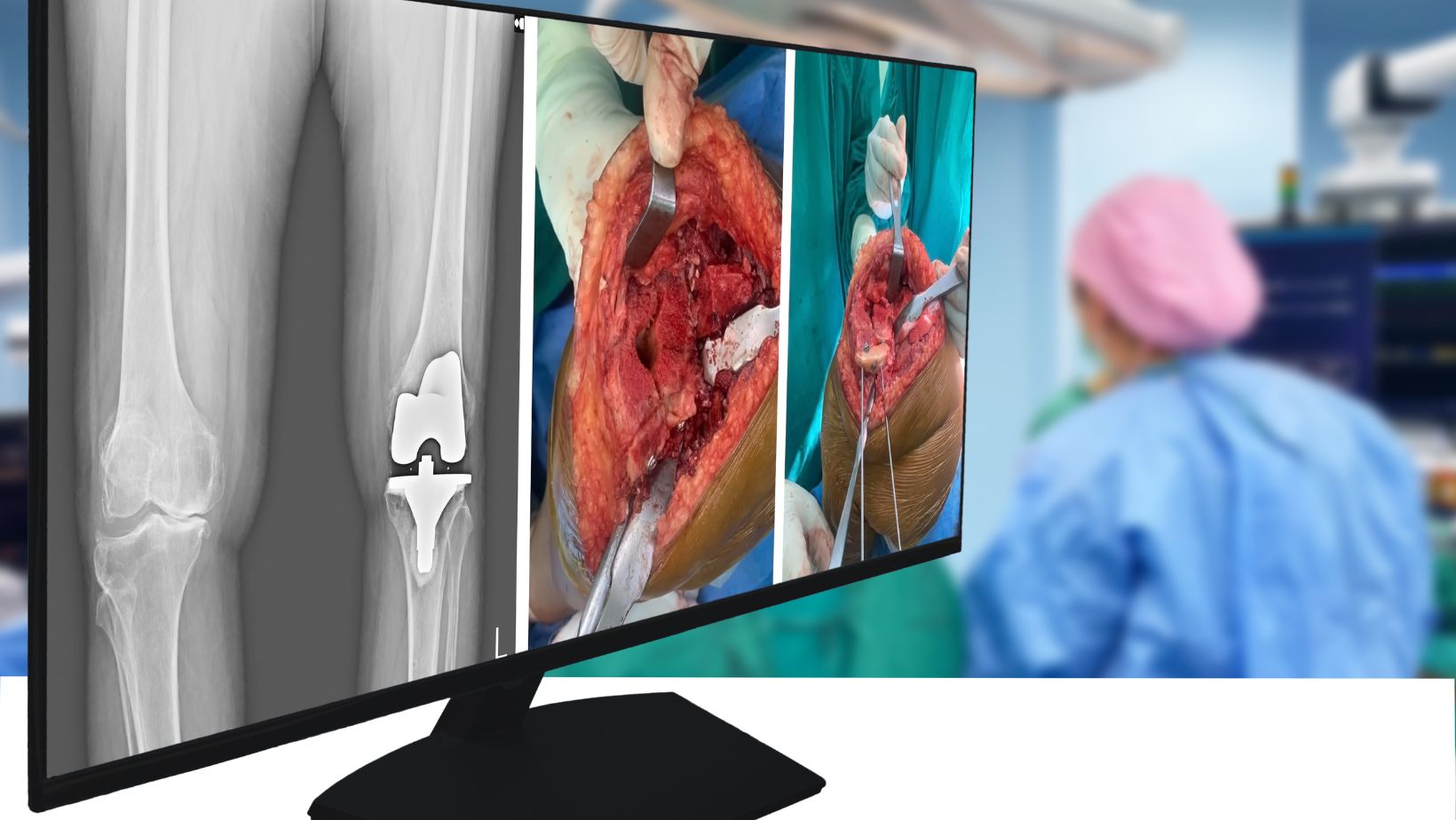The Impact of New Technology: New Knee Replacement Technology 2023
New Knee Replacement Technology 2023
In the realm of New Knee Replacement Technology 2023, several challenges persist that researchers and developers are actively addressing to enhance patient outcomes and satisfaction. Some of the key impediments in the current landscape include:
- Implant Longevity: Prolonging the lifespan of knee implants remains a significant challenge. While advancements have been made in implant materials and design, ensuring their durability over the long term continues to be a priority for researchers.
- Optimal Fit and Alignment: Achieving the perfect fit and alignment of prosthetic knees is crucial for restoring normal joint function and preventing complications. Innovations in 3D imaging and computer-assisted techniques are being explored to enhance the precision of implant placement.
- Postoperative Pain Management: Effective pain management following knee replacement surgery is vital for patient comfort and rehabilitation. Developing tailored pain management protocols that minimize discomfort and reduce reliance on opioids is an ongoing challenge in the field.
- Infection Prevention: Infections at the surgical site pose a significant risk to patients undergoing knee replacement. Researchers are focusing on innovative strategies such as antimicrobial coatings and aseptic techniques to reduce the incidence of postoperative infections.
- Implant Wear and Tear: Minimizing wear and tear on prosthetic knees is essential for prolonging their lifespan and reducing the need for revision surgeries. Advancements in materials science and surface technologies are being explored to enhance the durability of knee implants.
- Rehabilitation Optimization: Tailoring rehabilitation protocols to individual patient needs and ensuring compliance with postoperative exercises are critical for achieving optimal outcomes. Researchers are investigating technological solutions and personalized rehabilitation programs to improve patient adherence and recovery.

Emerging Materials in Knee Replacement
In 2023, the field of New Knee Replacement Technology 2023 is witnessing a surge in the utilization of advanced materials to enhance the performance and longevity of implants. Researchers and manufacturers are continually exploring innovative materials to address the challenges faced in traditional knee replacements.
Some key emerging materials being incorporated into New Knee Replacement Technology 2023 include:
- Graphene: A super-strong and lightweight material that offers excellent mechanical properties, enhancing the durability of knee implants.
- Ceramic-coated implants: These materials reduce friction, wear, and tear on the implant components, potentially extending the lifespan of the knee replacement.
- 3D-printed implants: Customized implants created through 3D printing technology provide a more precise fit, leading to improved outcomes for patients.
- Titanium alloys: Known for their strength, resistance to corrosion, and compatibility with the human body, these alloys are becoming increasingly popular in knee replacement surgeries.
By leveraging these cutting-edge materials, the future of New Knee Replacement Technology 2023 looks promising, with the potential to improve implant longevity, accuracy of fit, and overall patient satisfaction. Researchers continue to push boundaries in material science, paving the way for more durable and efficient knee replacements in the years to come.

The Impact of Robotics in Knee Replacement Surgery
Robotics has significantly transformed the landscape of knee replacement surgery in 2023, bringing unparalleled precision and accuracy to the operating room.
Some key points about the impact of robotics in knee replacement surgery include:
- Increased Precision: Robots can execute sub-millimeter measurements and adjustments during surgery, ensuring a higher degree of accuracy compared to traditional methods.
- Enhanced Surgical Planning: Advanced imaging technology allows surgeons to create detailed preoperative plans, optimizing implant positioning and alignment for each patient’s unique anatomy.
- Improved Outcomes: Studies have shown that robotic-assisted knee replacements result in fewer complications and faster recovery times for patients.
- Customized Procedures: Robotics enable the creation of patient-specific surgical plans, tailoring the procedure to individual needs and ultimately enhancing the longevity of the implant.
- Reduced Margin of Error: With robotics, the margin of error in implant placement is minimized, reducing the likelihood of premature wear and implant failure in the long term.
With the integration of robotics in knee replacement surgery, 2023 marks a significant milestone in advancing patient care. The precision, accuracy, and customized approach offered by robotic technology are revolutionizing the field, leading to improved outcomes, faster recovery times, and enhanced surgical planning. Patients can now benefit from tailored procedures that cater to their individual needs, ensuring a new standard of efficacy in knee replacement surgeries. The reduced margin of error in implant placement further solidifies the role of robotics in shaping the future of orthopedic surgery. As we look ahead, the continued evolution of New Knee Replacement Technology 2023 promises to redefine the way we approach and conduct surgeries, ultimately enhancing the quality of life for patients undergoing these procedures.

